Earth

Educators and Parents, Sign Up for The Cheat Sheet
Weekly updates to help you use Science News Explores in the learning environment
Thank you for signing up!
There was a problem signing you up.
-
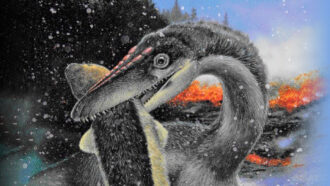 Fossils
FossilsWarm feathers may have helped dinos survive mass Triassic die-off
Dinosaurs may have weathered freezing conditions about 202 million years ago, thanks to warm feathery coats.
-
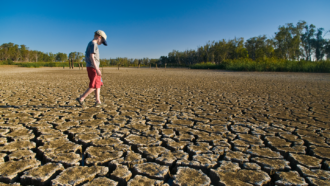 Climate
ClimateLet’s learn about heat waves
Heat waves often occur when a high-pressure system lingers over a certain area. These deadly events are on the rise due to climate change.
-
 Earth
EarthEarth’s rock collection hints at how to search for life elsewhere
A new way to sort minerals focuses on how they formed. It provides new clues about Earth’s crystal past and how to find life on other planets.
By Asa Stahl -
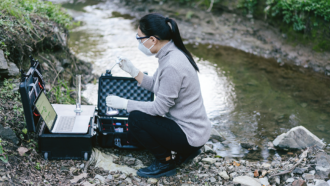 Chemistry
ChemistrySimple process destroys toxic and widespread ‘forever’ pollutants
Ultraviolet light, sulfite and iodide break down these PFAS molecules faster and more thoroughly than other methods.
By Nikk Ogasa and Janet Raloff -
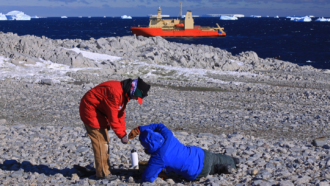 Earth
EarthUplifting Antarctic shores point to accelerating loss of glaciers
It appears the Pine Island and “Doomsday” Thwaites glaciers are losing ice — and shrinking faster — than at any time in the past 5,500 years.
By Douglas Fox -
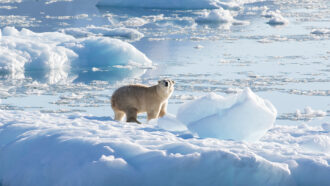 Animals
AnimalsSome Greenland polar bears are surviving with very little sea ice
The ‘glacial mélange’ on which they’ve come to rely — a mix of ice, snow and slush — could be a temporary refuge for some polar bears.
By Nikk Ogasa -
 Materials Science
Materials ScienceLet’s learn about diamond
Diamond is born under extreme heat and pressure inside Earth and elsewhere in the universe.
-
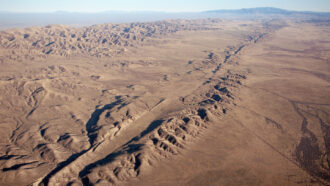 Earth
EarthScientists Say: Fault
A fault is a crack in Earth’s crust where pieces of rock scrape past each other.
-
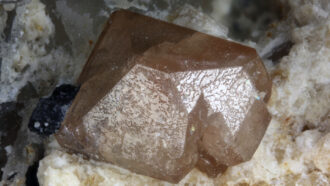 Earth
EarthTiny gemstones show when Earth’s crust first started moving
Chemical hints observed in zircons suggest when the important process of plate tectonics first took off.
By Nikk Ogasa -
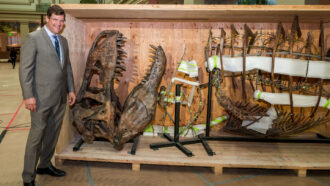 Fossils
FossilsCool Jobs: Bringing paleontology to the people
From museums to movies, these three paleontologists totally rock their connections with the public.
By Beth Geiger -
 Climate
ClimateCoastal cities around the world are sinking, satellite data show
Of 99 coastal cities studied, nearly one-third are sinking. This leaves coastal communities increasingly vulnerable to rising seas.
-
 Physics
PhysicsA new clock shows how gravity warps time — even over tiny distances
This clock measured how gravity changes the passage of time in different places — even spots just one millimeter apart.